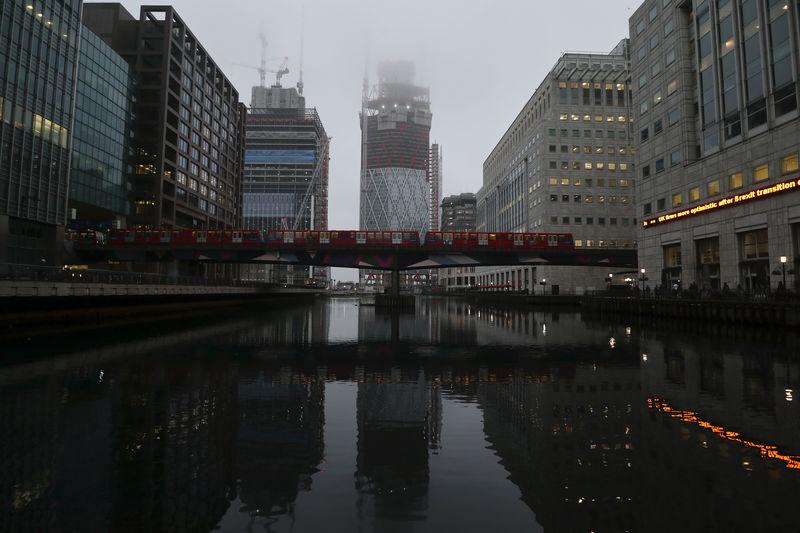Investing.com’s stocks of the week
LONDON (Reuters) - Britain's economy has been treading water since the start of the year and inflation pressures are easing, limiting the case for the Bank of England to raise interest rates next month, the British Chambers of Commerce said on Thursday.
The BCC's quarterly economic survey - the largest of its kind - showed a familiar picture of lackluster domestic demand, only partly mitigated by the boost to foreign demand from the fall in the value of the pound since June 2016's Brexit vote.
"What growth we see in the UK economy is due principally to strong global trading conditions, rather than domestic demand, which remains muted," the BCC's director-general, Adam Marshall, said.
Britain's economy recorded the weakest year-on-year growth of any major economy in late 2017, as consumers struggled with higher inflation caused by the weak pound, and more recent official data points to a further slowdown in early 2018.
However, the BoE said in February that the economy was close to reaching its capacity to grow without generating excessive inflation, leading investors to predict that a rate rise is coming next month.
Two of the BoE's nine policymakers voted for a rate rise at their last meeting in March, citing evidence of rising domestic inflation pressures in business surveys.
The BCC said this was not the experience of its members. Fewer firms expect to raise prices than in late 2017, and rising pay demands from workers were a problem for under a quarter of businesses, the survey showed.
"Inflation is now on a downward trajectory," BCC economist Suren Thiru said. "While we expect interest rates to rise next month, with UK economic conditions subdued and inflation weakening, the case for a further tightening in monetary policy continues to look limited at best."
Manufacturers in the BCC survey reported the fastest growth in export sales and orders since the second quarter of 2014. But domestic sales grew at the weakest rate since late 2016.
Services businesses reported steady domestic sales growth but only a minimal pick-up in the rate of export expansion.
"Even with a standout performance from manufacturing exporters able to reap the benefits of lower sterling, the UK economy as a whole is treading water, rather than powering ahead," Marshall said.
The BCC surveyed more than 7,000 businesses from Feb. 19 to March 12, before Prime Minister Theresa May reached a provisional agreement with the European Union on trading terms after Britain leaves the bloc in just under a year.
